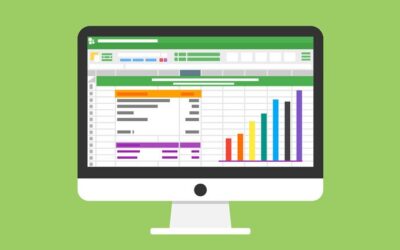Operating a small business is demanding. Financial management, customer service, excellent communication, negotiation, project management, networking, and leadership are few of the many business skills required to be more profitable. Amidst daily demands, nagging...
Blog
5 Vendor Management Tips for Small Businesses
Effective vendor management is an often overlooked process. However, it is one of the most critical processes to ensure the smooth running of your business operations while planning for future growth. Building (and maintaining) strong vendor relationships results in:...
How to Choose a Payroll Schedule for Your Small Business
As a small business owner, determining the ideal time to administer payroll may sound simple in theory. But the reality is that your payroll schedule must take into account a number of factors including: state regulations, cash flow needs, overtime rules, and the...
How to Calculate the Breakeven Point for Your Small Business
The breakeven point shows you how much product you need to sell in order to cover the cost of doing business. It can also be used to determine when your business will start to make a profit. Therefore, it’s no surprise that breakeven analysis is a key component...
How To Choose The Right Accounting Software for Your Business
[vc_row][vc_column][vc_column_text]A sole proprietor running a cash-only business with just a few customers and suppliers may get by just fine with a spreadsheet to keep track of income and expenses. However, for more complex business models, the benefits of investing...
How to Manage Payroll for Independent Contractors in 3 Steps
According to a LinkedIn survey, 70% of SMBs have hired freelancers in the past, and 81% plan to do so again in the future. These numbers should not be surprising considering the many benefits of bringing on independent contractors rather than full-time employees....
5 Biggest Financial Warning Signs for Small Businesses
According to the Small Business Administration, only about 50 percent of small businesses survive for a five year period. And, just one third are able to make it to the 10-year mark. While these statistics may not seem particularly encouraging, by identifying 5...
Separating Personal and Business Expenses
With another new year fast approaching, one of your small business goals may be to catch up on your bookkeeping. Indeed, one of the most common mistakes that small business owners make in this regard is mixing personal and business expenses also known as piercing the...
Small Business Accounts Payable Best Practices
In our most recent blog post, we shared tips for optimizing your accounts receivable in order to boost cash inflows. But when it comes to money leaving the business, you also need to have a solid plan in place especially in regards to accounts payable. What is...
Accounts Receivable Aging Report Explanation!
If you’re like most businesses, then there’s a good chance that you offer credit terms to some of your customers. This is known as your accounts receivable or AR as it represents the balance of money owed to a firm for goods delivered or services rendered but not yet...
23 Bookkeeping Terms Every Small Business Owner Should Know
For small business owners beginning to grow their enterprise, sometimes background work like bookkeeping may seem daunting at first with its many terms and facets. Even if you decide to hire a bookkeeper to help with accounting needs, it is still imperative that you...
Bank Reconciliation for Small Businesses: Why It’s Important and How to Do It
Whether you use accounting software like Quickbooks, an Excel spreadsheet or your an old school ledger book, the ultimate goal of bookkeeping is to reconcile a trial balance. Said another way, the final total of debits and credits must match in order to complete the...











